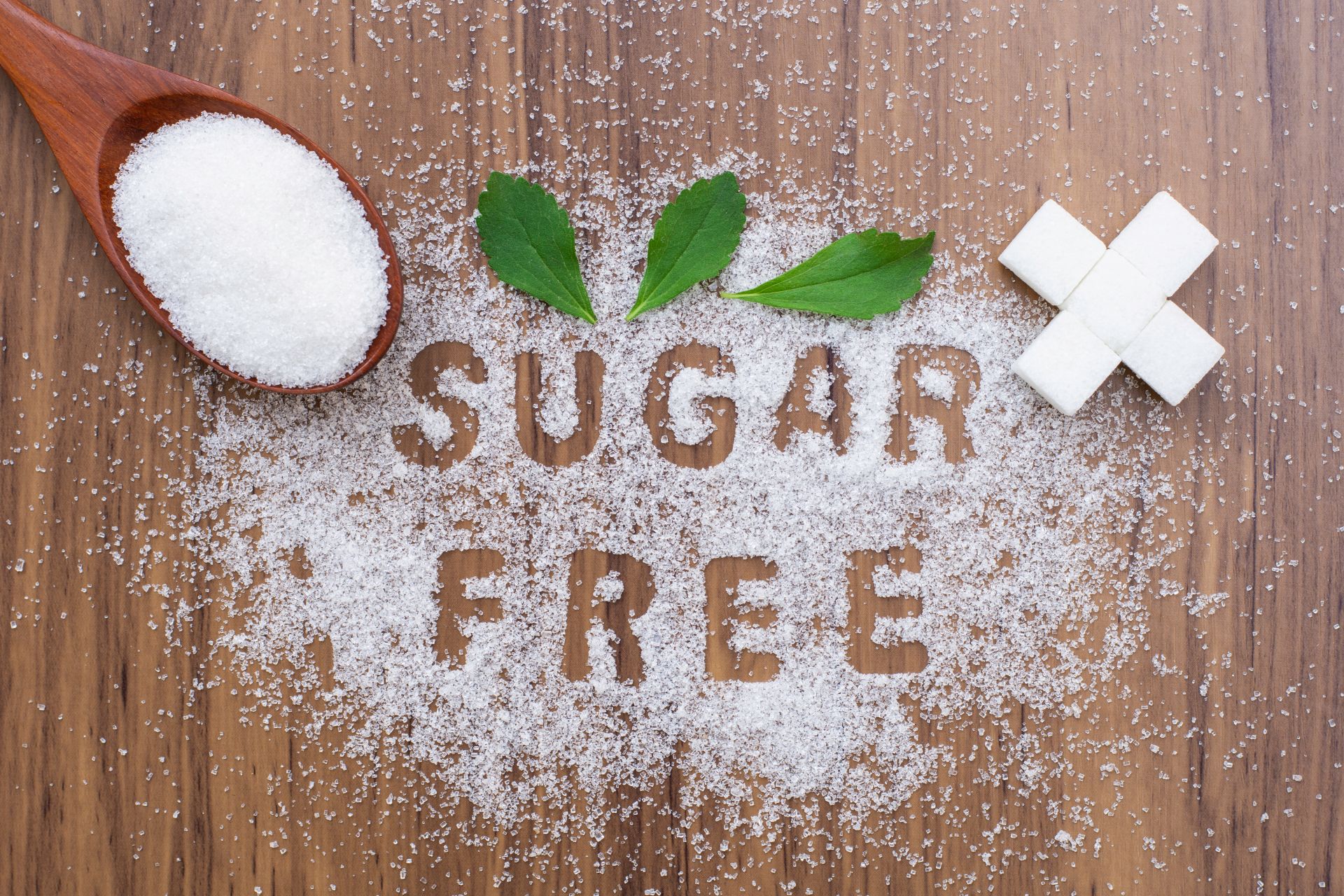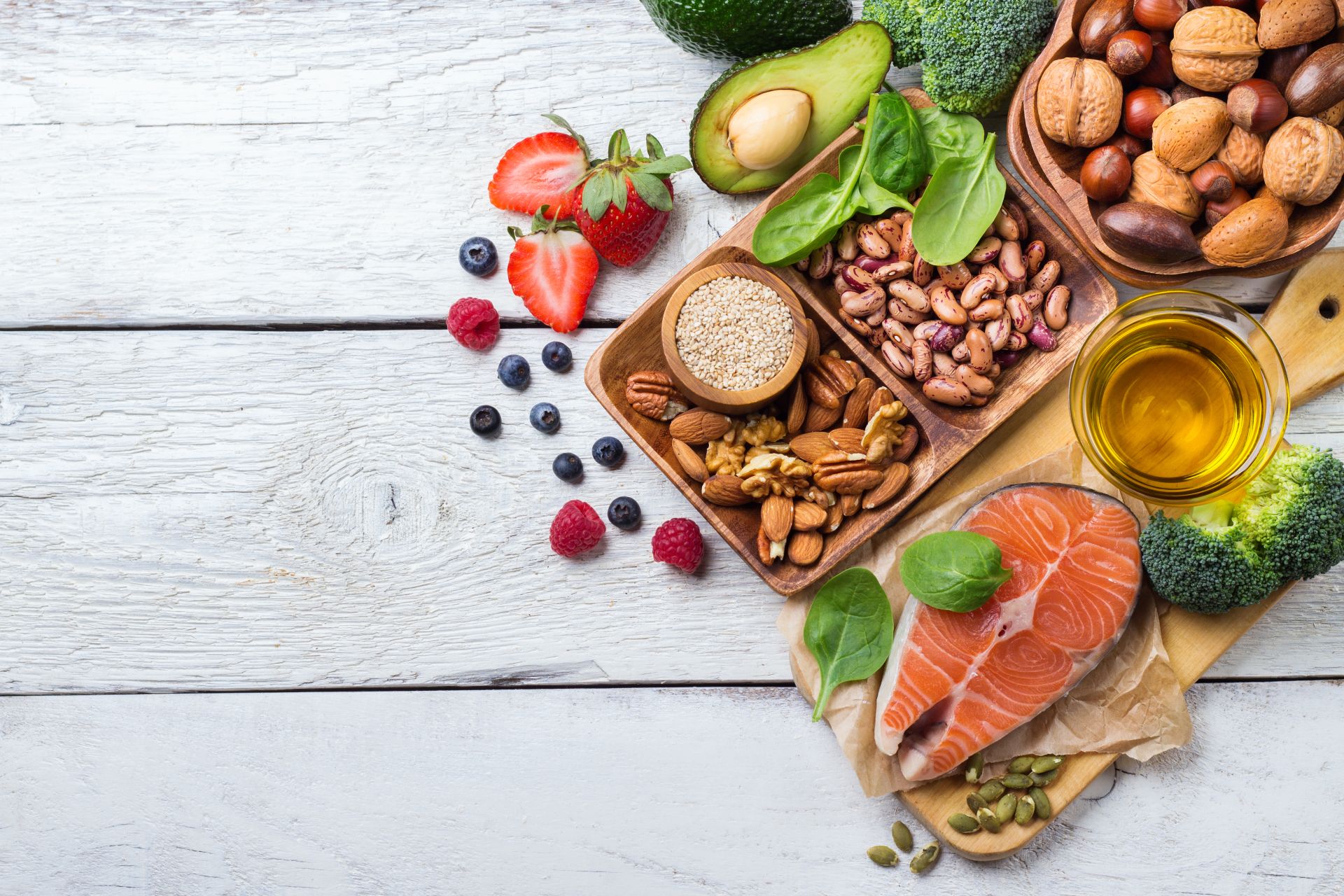Everything you need to know about sweeteners

Table sugar is a product consisting of glucose and fructose, which contains about 400 kcal while providing no valuable nutrients for the human body. There are a number of sweeteners, commonly known as sweeteners, which are alternatives to sugar. Let's check which sweeteners are commonly used as sugar substitutes and whether they are actually good for health.
Xylitol
Xylitol (E967) commonly known as birch sugar, is a natural sweetener that provides almost twice as many calories as table sugar. In addition, xylitol has a low glycemic index (GI = 7), so it does not contribute to a significant increase in blood glucose after consumption. Xylitol acts as a good substitute for white sugar in the diet of all people who care not only about reducing excessive body fat, but also about changing their eating habits to more health-promoting ones. Regular consumption of xylitol can reduce the number of cariogenic bacteria Streptococcus mutans, the presence of which is associated with the development of caries. Studies have shown that the use of a natural sweetener such as xylitol can reduce the risk of developing tooth decay by 17%. In addition, the results of studies on experimental animal models have shown that xylitol can increase intestinal absorption of calcium and the mineral content of bones, which protects against osteoporotic changes resulting from aging.
Erythritol
Another common natural sweetener is erythritol (E968), which naturally occurs in small amounts in mushrooms and some fruits and fermented products. Erythritol is an excellent sweetener for anyone looking to lose weight and maintain a healthy body weight later, as it provides trace amounts of calories. One flat teaspoon of erythritol (5 g) provides just 1 kcal, which means that erythritol is 20 times less caloric than table sugar. As a natural sweetener, erythritol can be safely used by patients with diabetes and insulin resistance, as it has a very low index and glycemic load. In addition, erythritol is a sweetener that does not cause tooth decay, as it does not ferment in the mouth and therefore cannot be converted to acids by oral bacteria. It has also been suggested that erythritol may reduce circulating blood levels of ghrelin, commonly referred to as the hunger hormone, and enhance postprandial satiety, which is attributed to erythritol's high osmolality compared to table sugar and other sweeteners.
Maltitol
Maltitol (E965) is a sweetener that is derived from starch derived from wheat, corn or tapioca. The calorie content of maltitol is 25-40% lower compared to table sugar, so this sweetener is a better choice for those following a weight-loss diet to reduce excess body weight. Maltitol also has a low glycemic index, which is 35. This means that this sweetener does not cause such a pronounced increase in blood glucose levels as table sugar and is a better choice for patients with carbohydrate disorders. Maltitol is not fermented in the mouth, which means that its regular consumption as a sweetener does not lead to the formation of plaque and the development of tooth decay. It is also worth mentioning that maltitol is a sweetener that is safe for human health, although when consumed in too large quantities it can cause diarrhea and abdominal bloating.
Stevia
Stevia (E960) is a natural sweetener that is 100 to as much as 300 times sweeter than traditional table sugar. Stevia provides no calories, so it can be used regularly by people who are concerned about losing weight or maintaining a healthy body weight over the long term. Compared to table sugar, stevia does not cause tooth decay or increase blood glucose levels. For this reason, stevia can be an excellent substitute for white sugar, and even more so in patients with insulin resistance and type 2 diabetes. In addition, this natural sweetener can lower blood pressure and support liver function, and relieve inflammation in patients with inflammatory bowel disease. Stevia has no carcinogenic, genotoxic or allergenic effects and is considered a safe sweetener for human health.

Aspartame
Aspartame (E951) is one of the most widely used calorie-free artificial sweeteners around the globe. This sweetener is characterized by its very high sweetness, so it is commonly added to a wide variety of foods, including sweet drinks. Aspartame is composed of two amino acids, namely L-aspartic acid and phenylalanine. This means that all products containing this sweetener should not be consumed by people with phenylketonuria, as aspartame is a source of phenylalanine. Compared to table sugar, the use of aspartame does not contribute to an increase in blood glucose levels or the development of tooth decay. However, there has been controversy over aspartame for many years, which is suspected of having carcinogenic, pro-inflammatory and pro-oxidant effects, so it is difficult to have 100 percent confidence in this sweetener.
Sucralose
Sucralose (E955) is another well-known zero-calorie sweetener that is about 600 times sweeter than table sugar. This artificial sweetener does not provide any calories, so it can be used as a sugar substitute by anyone on a weight loss diet. Sucralose does not contribute to a significant increase in blood glucose and insulin levels, so it can be used in moderate amounts by patients with diabetes and insulin resistance as an alternative to table sugar. However, be sure to choose only those sweeteners that actually have 100% sucralose in their formulation, with no maltodextrin added. The U.S. Food and Drug Administration has recognized sucralose as a sweetener that is safe for human health and has no negative side effects.
Sources:
-
Iizuka K.: Is the Use of Artificial Sweeteners Beneficial for Patients with Diabetes Mellitus? The Advantages and Disadvantages of Artificial Sweeteners. Nutrients. 2022 Oct 22;14(21):4446.
-
Debras C, Chazelas E, Sellem L, et al: Artificial sweeteners and risk of cardiovascular diseases: results from the prospective NutriNet-Santé cohort. BMJ. 2022 Sep 7;378:e071204.
-
Debras C, Chazelas E, Srour B, et al: Artificial sweeteners and cancer risk: results from the NutriNet-Santé population-based cohort study. PLoS Med. 2022 Mar 24;19(3):e1003950.
-
Pang MD, Goossens GH, Blaak EE: The Impact of Artificial Sweeteners on Body Weight Control and Glucose Homeostasis. Front Nutr. 2021 Jan 7;7:598340.
-
Saraiva A, Carrascosa C, Raheem D, et al: Natural Sweeteners: The Relevance of Food Naturalness for Consumers, Food Security Aspects, Sustainability and Health Impacts. Int J Environ Res Public Health. 2020 Aug 28;17(17):6285.
 ⮜ Previous article
⮜ Previous article
Healthy eating - key principles
 Next article ⮞
Next article ⮞